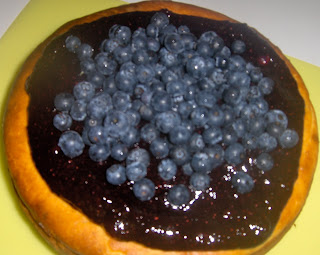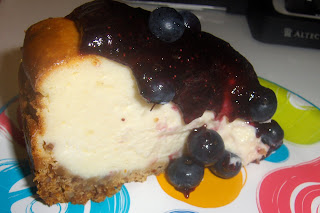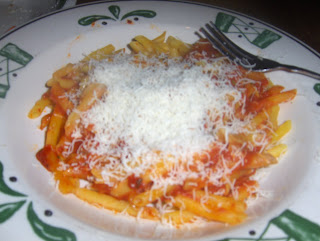I've wanted to do a post about this for a while now.
I can't believe it's been this long, but eight years ago I was diagnosed with Celiac Disease.
It's an auto-immune disease where the body can't tolerate the gluten protein found in wheat, barley and rye. The body produces antibodies that fight the gluten thinking it's a "virus" or a foreign body. The symptoms are intestinal problems, vitamin deficiencies, and all the problems caused by malabsorption of nutrients. (ex. osteoporosis due to lack of calcium). The only "cure" is to live a gluten-free diet. I'm sure you have seen the labels on products at the store. It becomes a lifestyle, not just a diet that will end in a few months.
I guess I just wanted to get my story out there, a lot of people have Celiac Disease, about 3 million Americans, and you could be one of them. I started this blog so that we can all live gluten-free and not starve!
For years I remember having an upset stomach and intestinal issues. It didn't seem to matter what I ate, or when I ate it, I always seemed to be running to the bathroom, getting head and body aches, fatigue, and just an overall sick feeling. Of course, you have to just keep living a normal life, everyone probably got tired of me complaining everyday that I just "didn't feel good". It didn't make any sense why eating normal and healthy foods, like whole wheat bread, cereals, and pastas made me feel so awful. I thought I was taking good care of myself.
My senior year of high school, we decided to look more into what really was going on, and after a series of test, we still weren't getting any answers. My mom remembered a man who went to our church who was living a strict diet. She talked to him and after listening to the symptoms, she decided to put me on a 3 day gluten-free trial. She was inspired, really. After day 2 when I started feeling better, we knew it was time to get a blood test.
To be tested for Celiac Disease, the first step is to get a blood test to see if your body has the antibodies that fight the gluten. (There are way more scientific terms) Then, they usually have you get an intestinal biopsy. My antibody numbers were off the chart so there was our answer!
Honestly, since I have made the switch to the gluten-free lifestyle it hasn't be too bad. It was really hard at first when I could remember what everything tasted like. It was hard to watch people eat pizza, donuts, and enjoy cupcakes at birthdays. I remember being with friends and explaining, 'no I'm not picky, I'm just can't eat that', 'yes, even a little bit will hurt', and so on. Now that it's been awhile, I can't remember what the gluten-full version tasted like and there are so many good substitutions out there, I no longer feel deprived. When I am at home, in my own kitchen, it's easy. I know what to make and how to make it. The hardest part still is social eating, since I don't always know exactly what's in the food being served.
Not only am I feeling better, I've learned a lot these last eight years. I have learned how to cook and how to substitute ingredients. It's made me plan ahead and be organized about meals, food and grocery shopping. It's made me read food labels and helps make healthy food choices. (Sometimes the things we put into our bodies is scary...) I've learned that eating, even though restricted, can be enjoyable and fun and with just a few tweaks here and there, it's not as hard as I once thought to be gluten free, and not starving.
I just want to end by saying thank you to my parents who helped me figure out what the issue was, and still helping and supporting me through this lifestyle. And thanks to my friends who always make sure at various events there is something that I can have as well, it truly means a lot to me. Thanks for all that have helped me!


























